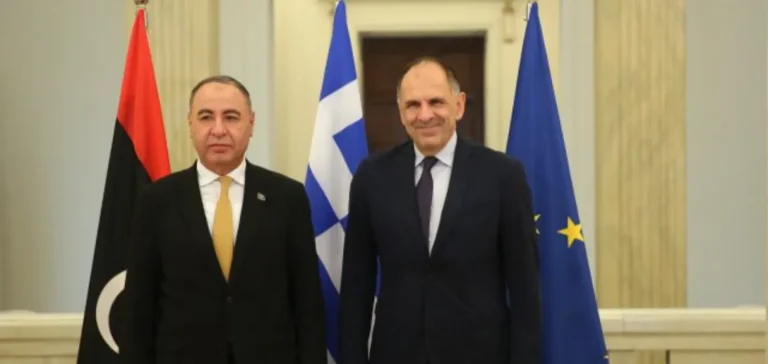Greece and the Libyan government recognised by the United Nations have announced the resumption of talks on the delimitation of their respective exclusive economic zones (EEZ) in the Eastern Mediterranean. The decision was made public following a meeting between the foreign ministers of both countries held in Athens. This marks the first official session of a diplomatic process aimed at clarifying maritime rights over a contested area with potential offshore hydrocarbon deposits.
A dispute intensified by a past agreement with Turkey
The dispute between Greece and Libya escalated after the 2019 signing of a maritime memorandum of understanding between Tripoli and Ankara. The agreement, denounced by Athens, does not recognise Greek jurisdiction around its southern islands, particularly Crete. In response, Greece sent an official letter to the United Nations this month, rejecting Libya’s claims over areas south of the island. These zones have already been allocated for oil and gas exploration concessions.
Next diplomatic meeting planned in Tripoli
According to the Greek Ministry of Foreign Affairs, the next phase of bilateral dialogue will take place in Tripoli, although no date has been announced yet. The process is unfolding while Libya remains divided between two rival entities: the Tripoli-based government recognised by the United Nations and a parallel administration in the east supported by Field Marshal Khalifa Haftar. This institutional instability has hindered several energy infrastructure projects and regional cooperation efforts.
Energy stakes at the core of the dialogue
The region south of Crete is considered strategically important for offshore hydrocarbon exploration. Greece has already granted licences there to international petroleum consortia. Any clarification of maritime boundaries could directly impact exploitation rights and the associated economic interests. The ongoing discussions could also reshape the energy balance in the Eastern Mediterranean, a region marked by dense and overlapping claims.






















